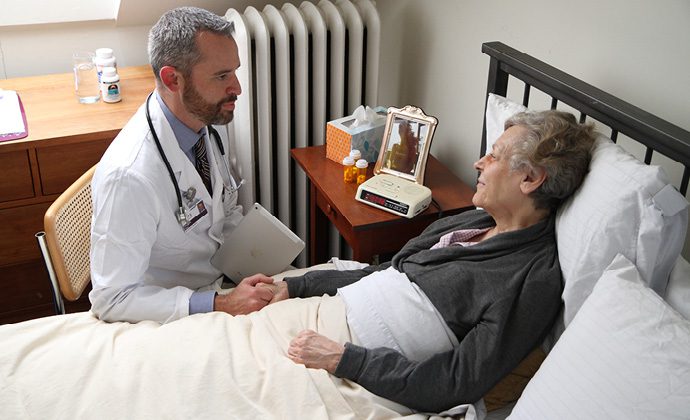Hospice is a specialized type of care for those facing life-limiting illnesses, their families, and their caregivers. hospice care addresses the patient’s physical, emotional, social, and spiritual needs. Medicare Hospice healthcare services performed by the patients attending physician who is employed/ paid/ part of hospice should be submitted to the hospice contractor for reimbursement. However, if the attending physician who is not employed or part of hospice performs the hospice services (related/not related to the patient was admitted into hospice), then those claims will be submitted to Medicare by the provider along with GV or GW modifier to indicate that a separate payment should be allowed.
Some modifiers are only used for patients enrolled in Medicare-certified hospices. these modifiers are important in the payment process and medical billing. GV and GW modifiers are only used for hospice patients.
Now let’s see when to use Medicare Hospice Modifiers GV and GW properly.
Modifier GV and Modifier GW Usage
The appropriate hospice modifier usage depends on who is providing the service, what services are being provided, and if the services are for/related to the reason the patient is enrolled in hospice.
ZEE Medical Billing does medical billing for physician offices that do Care Plan Oversight (CPO) for Hospice Patients.
The plan of care the hospice team creates can include any or all of these services:
- Doctor services
- Nursing care
- Medical equipment, like wheelchairs or walkers
- Medical supplies, like bandages or catheters
- Prescription drugs for symptom control or pain relief
- Hospice aide and homemaker services
- Physical therapy services
- Occupational therapy services
- Speech-language pathology services
- Social work services
- Dietary counseling
- Grief and loss counseling for the patient and their family
- Short-term inpatient care for pain and symptom management
- Short-term temporary care is provided in a nursing home, hospice inpatient facility, or hospital so that a family
member or friend who is the patient’s caregiver can rest or take some time off. - Short-term respite care for the patient’s usual caregiver can be in inpatient respite care in a Medicare-approved
facility (like a hospice inpatient facility, hospital, or nursing home). Each stay may be up to 5 days, maybe
received more than once, and is limited to an occasional basis. - Any other Medicare-covered services needed to manage pain and other symptoms related to terminal illness and
related conditions, as recommended by the hospice team
When billing for those services, G0182, we use the following Medicare modifiers:
GV Modifier
The GV modifier is used when a physician is providing a service that is related to the diagnosis for which
- A patient has been enrolled in hospice
- This physician is not associated with the hospice and is providing services as the attending physician.
It implies that when the patient was admitted into hospice and the patient attending physician who is not part of a hospice provider, performs the services related to the problem for which a patient was admitted, then the provider must add GV modifier to the procedure code when submitting those services to Medicare for reimbursement.
GW Modifier
The GW modifier is used when a physician is providing a service that is not related to the diagnosis for which
- A patient has been enrolled in hospice
- This physician is not associated with the hospice and is providing services as the attending physician.
When a patient is under hospice, there is a certain diagnosis that was indicated at the beginning of care. If the service the physician renders is unrelated to the terminal illnesses that hospice has on record, Medicare will not reimburse for the service unless it is submitted with the modifier GW. The GW modifier cuts through the Medicare edits and will pay.
Learn more about our Specialities
Frequently Asked Questions
Medicare Hospice Modifiers GV and GW are two specific modifiers used in medical billing for hospice services provided to Medicare beneficiaries. These modifiers help indicate whether a service was provided by a hospice or another healthcare professional.
Modifier GV should be used when a physician or healthcare professional is providing a service that is unrelated to the patient’s terminal condition. This means that the service is not directly related to the hospice care being provided and is considered separate from the hospice benefit.
Modifier GW should be used when a physician or healthcare professional is providing a service related to the patient’s terminal condition. This means that the service is directly related to the hospice care being provided and is considered part of the hospice benefit.
Incorrect usage of the modifiers or failing to use the appropriate modifier can lead to claim denials, delayed reimbursements, or even potential compliance issues. It’s crucial to understand the correct usage and ensure accurate documentation to avoid such complications.
Yes, absolutely! ZEE medical billing company has a team of experienced professionals well-versed in Medicare billing regulations. They can provide guidance and assistance in correctly using modifiers GV and GW for hospice services, ensuring compliance and maximizing reimbursements. Feel free to reach out to their dedicated support team for any billing-related queries.





